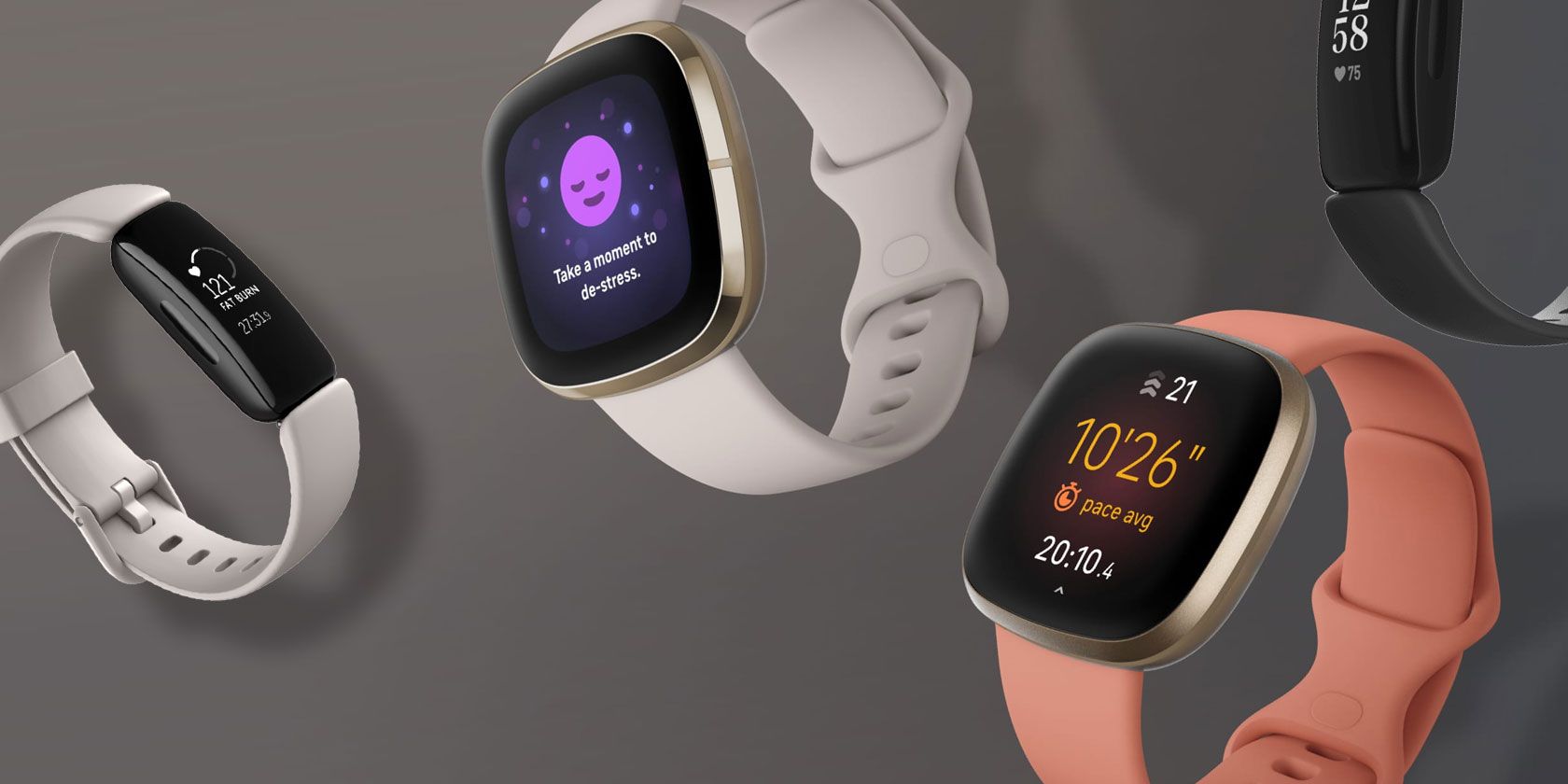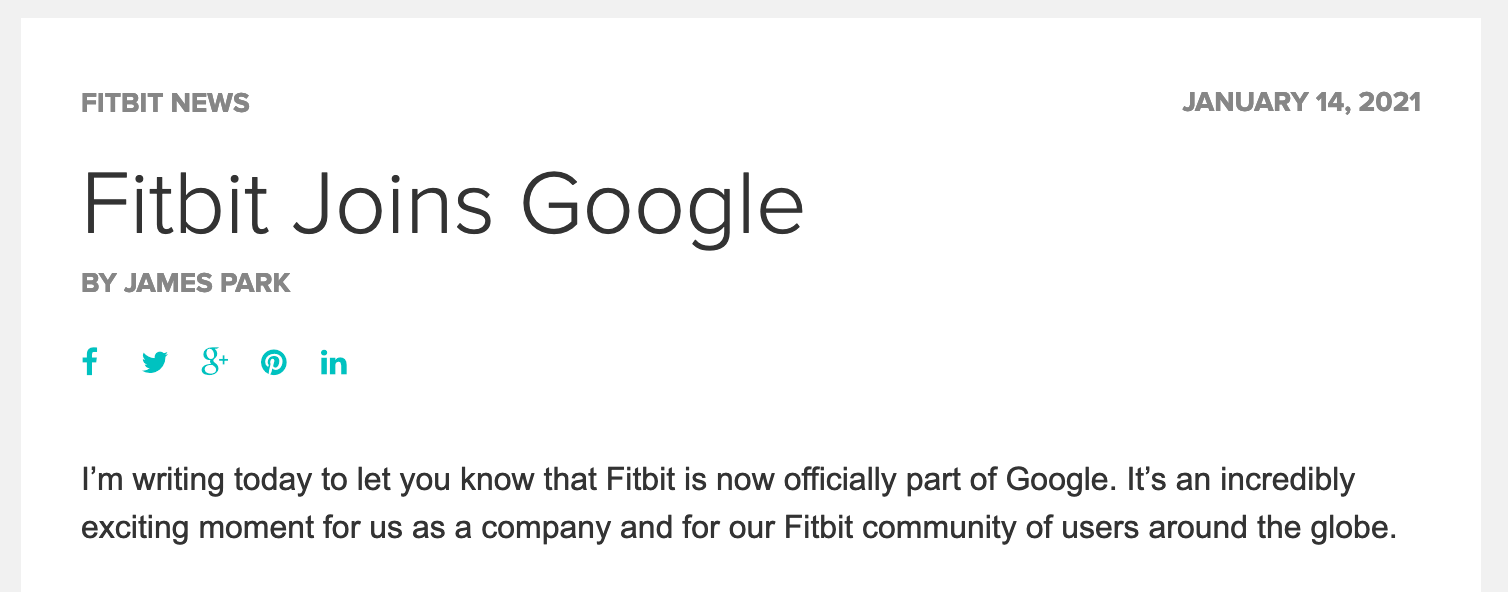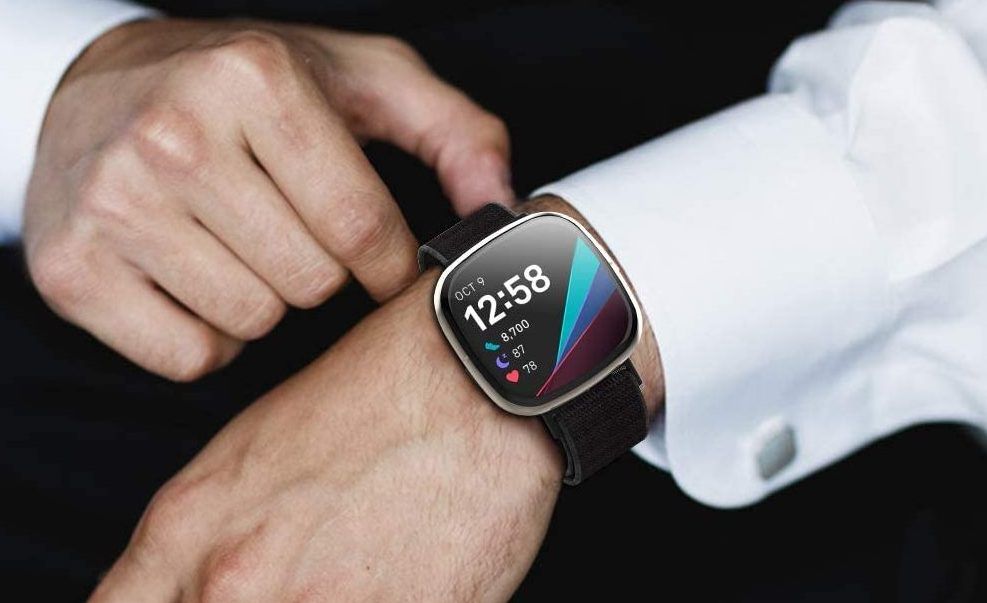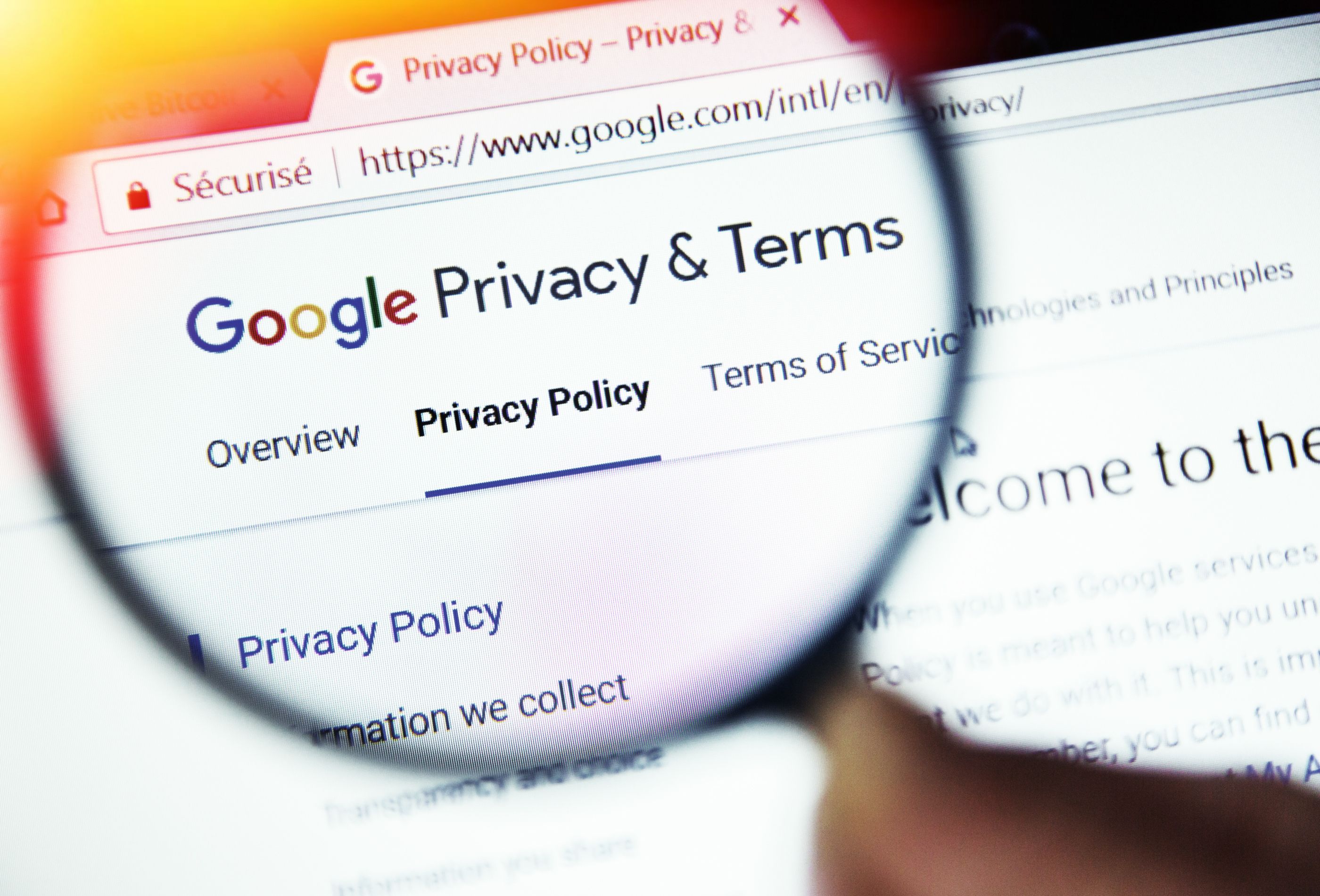Fitbit is one of the most well-known fitness tracking companies. Over the past decade, it has sold more than 105 million devices and has over 30 million active users.
It's no surprise that Google took an interest in the business. In late 2019, Google announced its plans to acquire Fitbit. After regulatory hurdles, Fitbit officially became part of Google in January 2021.
If you're concerned about how this new setup will impact your Fitbit health data, we'll take you through what we know so far.
Fitbit Joins Google
Fitbit is the most successful fitness tracking company. Much as google is now the generic expression for performing an internet search, Fitbit is often used as a descriptor of all fitness trackers. The company's feature-packed devices monitor your sleep, keep tabs on your steps, and can track your workouts. Generally, they are comfortable to wear, have good battery life, and integrate well with the Fitbit smartphone app and website.
Following Fitbit's acquisition of the smartwatch company Pebble, it launched a range of well-received smartwatches, including the Fitbit Versa series and, recently, the Fitbit Sense. These watches are widely considered the only real competitor to the Apple Watch, the most successful wearable on the market. Google has tried many times to launch a successful smartwatch platform running its Wear OS software.
However, none of these attempts have dented the market, leaving Android-based smartwatches languishing in relative obscurity. Although they've not said as much, Fitbit's close competition with Apple is likely a crucial reason Google acquired the company.
After publicly stating its intent to purchase the company for $2.1 billion in November 2019, the sale was finally approved by regulators in January 2021. Consequently, as of January 14th, 2021, Google owns all Fitbit products, services, and user data.
What Happens to Your Data?
Fitbit trackers collect some of our most intimate health data. The number of steps we take each day shows how active we are; our heart rate suggests the type of movement we're performing and reveals our underlying health. If you wear your tracker to bed each night, then the company knows how long you sleep for and when.
Using all of this, not only can Fitbit build a profile of your daily habits, but they can use it to infer other health-related insights like chronic health conditions and our mental wellbeing. For the past few years, women have also been able to track their menstrual health, a notably personal subject.
Understandably, you might be more than a little apprehensive about the world's most infamous privacy violator holding such sensitive information. To date, Google has been reasonably quiet about its plans for your data, only confirming that "this deal has always been about devices, not data."
One of the reasons regulators were so interested in the purchase was the risk of Google using your health data for its own purposes. As part of the announcement, Rick Osterloh, Senior Vice President, Devices & Services, said that "a series of binding commitments that confirm Fitbit users' health and wellness data won't be used for Google ads and this data will be separated from other Google ads data."
Can You Trust Google?
Throughout 2019 and 2020, politicians from all sides began attacking what is now known as Big Tech. These companies---including Amazon, Apple, Facebook, and Google---all but control how we interact with the online world. Each business holds an almost-monopoly in its respective area, with the vast majority of searches and smartphones using Google's services.
In 2020, Google, now an Alphabet subsidiary, had a $40 billion net income, and its services are available in most countries worldwide. This enormous size makes it hard, and sometimes impossible, for authorities worldwide to effectively regulate the company. This has become so much of an issue that in October 2020, the United States Department of Justice filed an antitrust lawsuit against Google for illegally maintaining its monopoly position.
While it'll take many years for this lawsuit to come to a resolution, it's a sign of how Google has become so large that it can effectively make decisions against the regulator's wishes. In the context of Fitbit data, this is obviously a concern. While the company has not made any official statements that they will use Fitbit data for other purposes, all communication to date has been vague on exactly how it intends to keep this information separate. It's for this reason that people worry about the privacy implications of Google buying Fitbit.
This also wouldn't be the first time a Big Tech company broke its promises to regulators. In 2014, Facebook acquired the messaging app WhatsApp. At the time, regulators were concerned that WhatsApp data would be shared with the parent company. Facebook said that wouldn't happen, so the deal was approved. In January 2021, Facebook revised WhatsApp's privacy policy to force users to share data between the two platforms.
Of course, Google is not Facebook and may choose to conduct itself differently. However, Google has a reputation for making privacy-invasive products. For many years, the company would scan all of your Gmail account's emails and use the email content for ad targeting. Similarly, Google's Android smartphone platform is famously more data-hungry than Apple's iOS operating system.
The Future of Fitbit
In many ways, Google's acquisition of Fitbit is a good development. The company's size and vast financial resources could be used to help Fitbit build a cohesive set of feature-packed products and potentially lower the cost of the physical devices, too. As a Fitbit user, this is a welcome development.
It may also help bring more people into the platform, improving Fitbit's social offerings, like in-app competitions and subscriptions like Fitbit Premium. However, Google's size may also prove to be the most divisive part of the deal.
With an antitrust lawsuit looming, Google may neglect its new team or turn its back on promises made to regulators about keeping personal data away from the company's ad platform. The company also has a complicated history of shutting down popular services.
Of course, you may decide that the privacy-based fears are overstated. In which case, it's time to decide which Fitbit tracker is the best for your needs.




